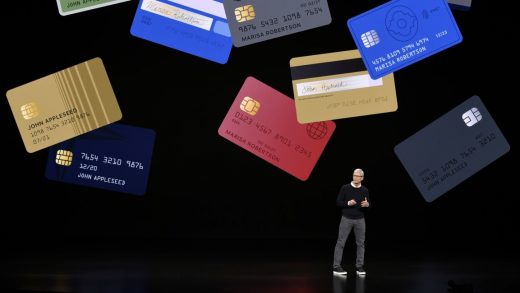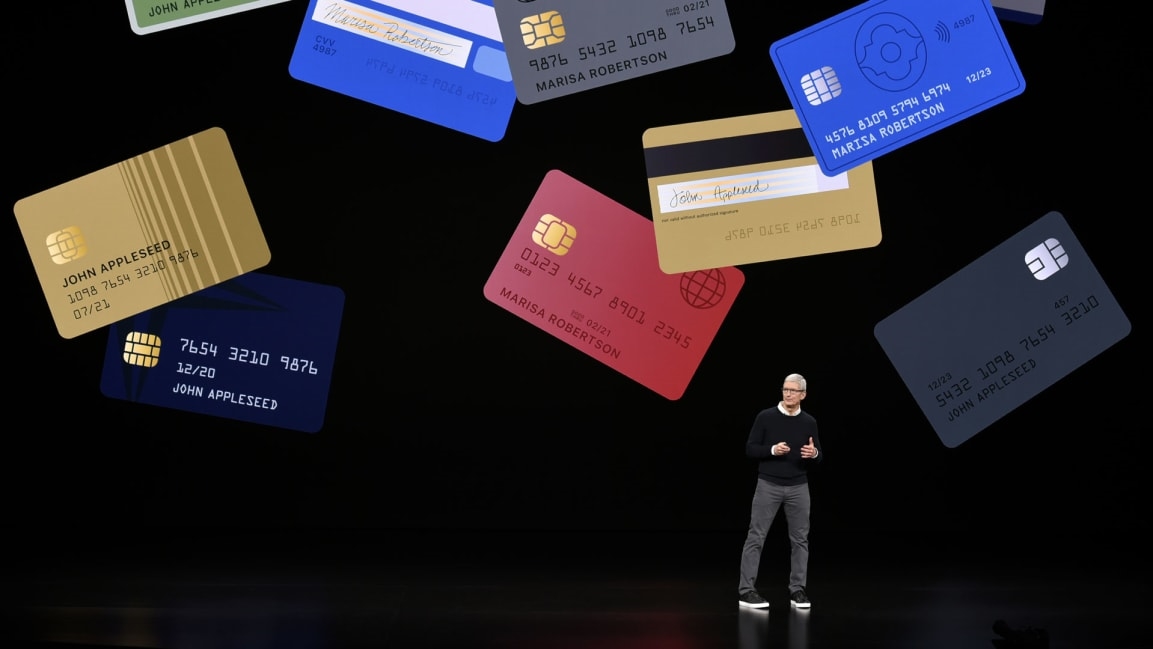It’s time to break up Apple
A recurring theme of the last two years–politically, culturally, economically–has been yelling out loud what was supposed to be merely whispered or implied; throwing caution to the wind and, essentially, telling on yourself. That’s exactly what Apple did (April 01, 2019).
This Monday, the beloved tech giant announced its big plans to seek fresh revenue in areas where it’s already built a significant audience. You’ve been able to get loans to purchase Apple products–now it’s launching the credit card to end all credit cards. Before, you could read news on Apple’s News app–now the company is partnering with some of the largest news outlets (Full disclosure: including Fast Company) for a one-stop-shop media subscription service. For years, Apple has offered its Apple TV streaming device, featuring the services and content of other providers–now it’s rolling out a slate of soon-to-be-released streaming original content, featuring A-list talent like Steven Spielberg and Oprah Winfrey.
In all of these cases–entertainment, news, games, payments–it already provided a dominant, if not leading, application or service. Tim Cook, during the presentation, frequently described the company as the “number one” gaming, news, and payments platform. Now it’s adding yet another layer to bring in more revenue and further control the means of production.
In the two-hour presentation, Apple transformed from product maker to platforms and services provider; Tim Cook’s ambition is to control every aspect of its domain. And that should give many of us pause.
Less than a month ago, Elizabeth Warren made headlines for her sweeping plan to break up the tech giants. Though she didn’t initially mention Apple, she later explained to the Verge that, yes, the Steve Jobs-founded company is also in her crosshairs. Her analysis was clear: “Apple, you’ve got to break it apart from their App Store,” she said. “It’s got to be one or the other. Either they run the platform or they play in the store.” She went on to extend beyond just the app store, explaining that large platforms like Apple maintain control via “market dominance.” Added Warren, “the problem is that’s not competition.”
Warren’s plan is relatively straightforward in theory: If you are a tech giant that offers both products and services, you need to be broken up. “If you run a platform where others come to sell, then you don’t get to sell your own items on the platform because you have two comparative advantages,” she told the Verge. Warren mapped out her proposal via a Medium post–specifically targeting Facebook, Google, and Amazon, but Apple could absolutely be included. The plan would essentially treat programs like the App Store, as well as any other leading platform Apple makes, as a utility, barring it from selling its own services. Warren isn’t alone calling for such big regulatory upheavals–she’s joined by conservatives, including Senator Ted Cruz and Fox News pundit Tucker Carlson, who have made a similar arguments, too.
Meanwhile, the European Union has already been looking into the company’s stranglehold. Apple, for example, is notorious for exerting completely control over apps–much to the chagrin of its competitors. Both Spotify and Fitbit have been penalized by Apple’s App Store rules, which struck many as the behavior of a monopoly exerting its power. Just (April 01, 2019), The Information reported that Apple’s partners are increasingly wary of its sweeping power. Even Netflix has quietly nodded at Apple’s growing clout, such as when it stopped allowing new users to sign up via the App Store (a single functionality for one app that allegedly brought in $253 million in revenue for Apple).
All of this was brewing long before we learned about the company’s huge ambitions when it comes to services, which only makes the calls to break up Apple more prescient. With its announcement, Apple was essentially saying it wants to control the way people get their content, the devices on which they consume it, and the content itself. It was, in short, a two-hour infomercial for an antitrust case against Apple.
In 2017 a scholar named Lina Khan published a paper in the Yale Law Review making the case that Amazon has redefined how we should think about antitrust issues in the digital era. Her argument consisted of a rethinking of what constitutes monopolistic tendencies in the early 21st century. For years, a company’s domination was measured by its control of the price and output of the product it provides. With digital platforms, that’s no longer enough, Khan wrote. She describes the new antitrust paradigm thus:
First, the economics of platform markets create incentives for a company to pursue growth over profits, a strategy that investors have rewarded. Under these conditions, predatory pricing becomes highly rational–even as existing doctrine treats it as irrational and therefore implausible. Second, because online platforms serve as critical intermediaries, integrating across business lines positions these platforms to control the essential infrastructure on which their rivals depend. This dual role also enables a platform to exploit information collected on companies using its services to undermine them as competitors.
In this case, she was talking about Amazon, which has long pursued scale and growth, constantly investing its profits, as a way to control and conquer. Meanwhile, it built out infrastructure invisible to the naked eye. The company created a suite of services that both consumers and competitors turned to–cloud storage, advertising, entertainment, and online marketplaces. It sought to control all sectors of its business, and by extension, expand and scale to heights never before seen.
This same logic can (and should) be extended to Apple. The company is no longer content to keep building computers and providing real estate for other services. It aims to control the way people buy things, essentially building its own bank; It’s also forming a Hollywood studio and producing its own content, while also providing one of the leading platforms for OTT content consumption; couple that with its news offerings and updated gaming ambitions and it’s clear that Apple wants to dominate all aspects of computing and digital media–from the programming people consume to the business models and platforms on which the content creators rely. Which is to say that while consumers may not be hurt in the short run, this revenue shift means that Apple is using its platform power to nudge businesses–from gaming to entertainment to media–into begging for access to its 1.4 billion devices. That’s precisely the “market dominance” Warren has been talking about.
This isn’t a huge shock, of course. Nearly all of the tech giants have bold ambitions to go beyond the services and products they originally pioneered. But Apple’s bundling of all its new services announcements–despite the fact that some are almost a year out–shows that the company is thinking about them all in concert as part of a dynamic and all-encompassing shift in its business model.
In the meantime, many of the details have yet to be sorted out. The Wall Street Journal, for example, is part of this News+ offering, but it is unclear if Apple subscribers will get total access to the newspaper’s content at a steep discount. The fact that this remains so opaque–even to the digital media executives who have inked these deals with Apple–is proof that the company isn’t thinking about making the media industry more equitable or sustainable. It simply wants to control it.
For now, onlookers are left without many key details about these seismic shifts, and for good reason. Apple’s announcement was about loudly proclaiming its ambitions, telling the world it’s ready to go beyond goods and to dominate services and platforms, too. To put it simply, Apple thinks it’s already positioned as too big and consumer-friendly to be stopped. And for a company that’s always been about synthesizing the future, it feels out of step with where the conversation about big tech is going. Maybe it’s time for an intervention.
(59)



